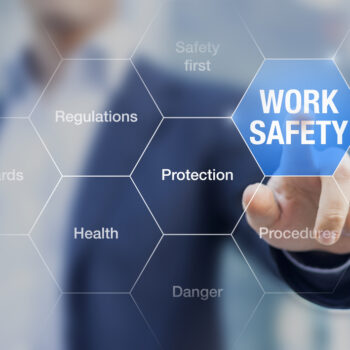There are over 100 first languages spoken in Birmingham, a city with strong African, Caribbean, and South Asian links.
Many of these groups are seldom heard and often underrepresented in local government communications.
Modupe Omonijo, Public Health Consultant at Birmingham City Council has been working with multiple teams within the council to adopt a whole community approach.
This case study reviews the approach the council has taken, looking at the practical methods applied, and the successes they have had.
Birmingham City Council’s Whole Community Approach
Over 40% of the 1.2 million people in Birmingham City are from non-White British ethnicities.[1]
To better engage with these communities and follow the philosophy of ‘working with and for communities’ Birmingham City Council have pinpointed three key aims.
1. Community Involvement
Ensuring there is two-way communication in place has been a priority for the council.
They have focused on getting feedback and being able to actively engage members of the community.
The team have also taken an asset-based approach, through their Covid-19 Community Champions, who have volunteered to act as a conduit between local government and the community.
2. Community Need
Understanding the different communities, with an emphasis on the seldom heard has formulated the second pillar of their plan.
The council have been tailoring information based on this, creating localised, accessible resources.
This has included using local digital media, press, social media, as well as a variety of non-digital methods of getting information to the public.
3. Community Empowerment
The council has also aimed to utilise the reflections from community groups, who they have described as ‘amplifiers’.
Proactively collating regular feedback from these groups as well as others in the community and incorporating that into continuous improvement forms the final part of their strategy.
Community Champions
As mentioned above, the council ran a Community Champions Programme focused on Covid-19.
The main reason for this was to clarify the confusing and often conflicting sources of information.
Many will have received messages in group chats claiming a whole host of falsehoods in relation to the pandemic. The idea behind the Covid-19 champions was to distribute accurate information into the community through trusted sources.
This entailed striking up partnerships with public health and other local stakeholders to receive the information, and then disseminate it in an accessible way.
There was also another string to this bow, which was that it provided a real opportunity for citizens to drive action on engaging and communicating effectively, potentially beyond the parameters of the pandemic.
The champions were residents who live or work in Birmingham, and who actively wanted to make a difference in their communities. They were all volunteers, and often respected and trusted members of seldom heard, disadvantaged communities.
At the time of writing, there are 59 Youth Champions, 870 Community Champions, and 20 Business Champions.
The council are dedicated to further developing the champions into ‘Community Researchers’. This will involve working closely with the Business Champions to try and provide solutions to some of the broader problems faced by these communities.
The champions are receiving training as part of the programme, including:
- A welcome pack, with a message from the Director of Public Health
- Regular meetings and webinars with guest speakers
- Champions-only newsletters with a ‘get talking’ section for shared learning and peer support
- A Code of Conduct on the rules of engagement
To inform the public, a weekly newsletter has been created sharing the best champions’ stories from that week.
There are also email addresses and WhatsApp details of the champions available to provide more methods of disseminating information quickly.
Champions also lead fortnightly webinars for members of the public to keep them up to date with the broader messages regarding public health.
Creating Accessible Content
Commissioned partners and public health bodies regularly produce translated and accessible materials to reach communities that may not be able to engage with written English.
Some of the languages Birmingham City Council regularly translate materials into include:
- Arabic
- Bengali
- Traditional and Simplified Chinese
- Kurdish
- Panjabi
- Pashto
- Polish
- Romanian
- Urdu
- French
- Hindi
- Somali
- Gujarati
- British Sign Language[1]
An emphasis on accessibility was also seen at a national level, with one woman winning a claim over the lack of sign language at the daily Covid-19 briefings from Number 10.[1]
The council also tailored their information using a local touch, designing assets around the Bull Ring shopping centre as a unifying image for Birmingham.

To further the reach of the messaging, localised Covid-19 online webpages were created. There were over 500,000 visits to these sites in 2020.[1]
Social media channels were used to engage with younger members of the community, with 25% of Birmingham’s population being under 18.
There was a live ‘Tweetathon’ of the Covid-19 roadmap, Facebook Live Q&As, and Instagram Live sessions for further updates.
Reflections and Future Plans for Engagement
The successes of the project came from using more than just the traditional means of communicating.
Champions were able to act as advocates for local authorities which were previously less accessible to the seldom heard groups.
Building trust between the public sector and the communities they serve is an ongoing struggle across the country. By using community amplifiers and connectors to maximise engagement that relationship is improving in Birmingham.
Having a citizen-led approach across all ages helped facilitate an open dialogue and honest discussion between these groups themselves, as well as with the council.
Consistently translating the key materials coming out of the pandemic into the top 10 most spoken languages has also helped to expand the network of advocates and engage more residents than ever before.
Looking ahead, Birmingham City Council are aiming to enhance and expand on the learning by gathering even more feedback from the public.
Evaluating on this feedback to figure out ways to gain more representation, reach, and responses will be key to engaging the diverse communities across the city.
[1] Omonijo, Modupe. 2021. Public Health Consultant, Birmingham City Council. Communicating with Hard to Reach Groups Through a Whole Community Approach.
Register FREE to access 2 more articles
We hope you’ve enjoyed your first article on GE Insights. To access 2 more articles for free, register now to join the Government Events community.
(Use discount code CPWR50)




